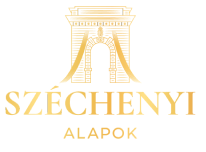 The 2017 report of the East-West Digital News (EWDN) market research agency introduces startups from 24 countries in Central and Eastern Europe. It shows that next to Estonian startups, Slovenian ones are considered the most innovative.
The 2017 report of the East-West Digital News (EWDN) market research agency introduces startups from 24 countries in Central and Eastern Europe. It shows that next to Estonian startups, Slovenian ones are considered the most innovative.
The report examines startups in the countries east of Germany and Austria, including former Soviet countries, as well as Russia itself, and the countries of the Caucuses (but not Central Asian countries) and the countries of the former Yugoslavia.
The level of development in these countries and territories varies greatly but the Slovenian startup ecosystem stands out.
Funding for Slovenian startups has increased exponentially since 2005. In the last five years about half a billion dollars has been invested, with a peak of 131 million dollars in 2015. More than 500 transactions have been concluded in the past 13 years. Several company founders raised capital on several accounts, which allowed them to observe different constructions. No reliable summary report on the capital invested in 2018 is available yet, although it seems that this year will not be the best of all.
Several serious investment decisions have been made in the last year: OriginTrail raised 22 million dollars in capital, InsurePal raised 18 million dollars, while Layer and Celtra each raised 15 billion dollar. The Slovenian startup world is on the frontline especially in the field of blockchain technology and the development of various cryptocurrencies.
It is a Slovenian particularity that more than half of the funding for startups came from a combination of crowdfunding and selling shares, ICO, in 2017. In the ever growing community of cryptocurrencies, only Bitstamp and Iconomi attracted 5% of the capital raised by global ICOs.
In Slovenia, a third of the new capital was provided by venture capitalists. The government provided only 2.6 % of total investments, and this relatively small amount was even divided between 50 companies. The value of unpublished transactions could amount to one third of the capital raised in 2017.
According to analysis from Silicon Gardens, the capital flowing to Slovenian startups comprises of a healthy combination of small and large transactions. Last year, 15 companies received investments of less than 50 000 dollars, for a total of 287 000 dollars. The majority of the companies (56) received an investment of between 50 000 and 150 000 dollars, totalling 3.6 million dollars. Eighteen startups got capital injections of between 150 000 and 1 million dollars, totalling 6.8 million dollars, while 16 companies received funding of between 1 and 10 million dollars, amounting to 46 million dollars in total. Seven companies attracted investments of more than 10 million dollars, making for a total of 105.7 million dollars.
Besides new media solutions, the wallets and imaginations of investors were mostly caught by services that help improve corporate productivity, as well as various health care services.
Only 4% of the capital invested in startups originates from Slovenia (6.2 million dollars). The majority of investments comes from the US, and a smaller portion from the EU. Only 1% of the investments came from Asia. About 65% of the total capital was invested in Slovenia, but many companies, when they receive capital, move to other member states of the European Union or to the United States.
Aleš Špetič, IT specialist, CEO and founder of Klevio, states in his blog that Slovenia can only continue to improve its startup ecosystem if it solves the following three problems:
(1) Problematic processes
- investors need to be physically present
- companies cannot buy inactive founders out
- the operation of small funds and syndicates are facing legal obstacles
(2) Problems in taxation
- capital reinvestments are not encouraged
- stock options are extremely expensive
- all stock transactions are subject to tax
(3) Problems in business
- regulation is not transparent for foreigners
- employing foreigners is challenging
- the rules pertaining to employers for small enterprises are complicated
According to Aleš Špetič, who is moving his headquarters to London: “this is why an annual average of 100 million euros flows out , regrettably, from the hands of young Slovenian entrepreneurs, who will take this capital away, while they could also have invested it in Slovenia.”
Branco Drobnak, a financial specialist and the president of the Slovenian Business Angels Association is much more optimistic. Drobnak established his own startup portfolio as an investor, and invests in new technological solutions primarily. He targets startups engaged in biotech, fintech and green energy, and, nowadays, those engaged in blockchain. “Utilising my membership in the European Business Angel Network, I do my best to make the already successful Slovenian ecosystem support innovative startups even more, and to help keeping the most creative people in Slovenia” he says.
